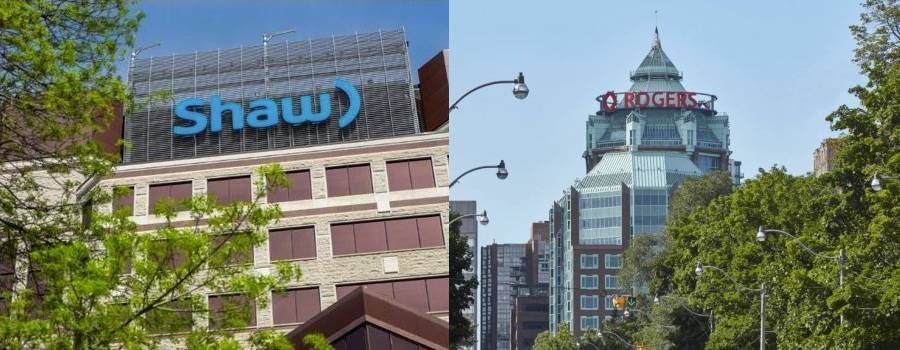Rogers to acquire Shaw in $26 billion deal

The legacies of Ted Rogers and JR Shaw are set to merge in the massive deal, with the Shaw family to become one of the largest shareholders of Rogers Communications.
R ogers Communications has rocked the Canadian business landscape with the announcement of a plan to acquire Shaw Communications in a deal worth $26 billion, effectively merging the legacies of communications industry pioneers Ted Rogers and JR Shaw.
The transaction, which is subject to regulatory approvals, will see Toronto-based Rogers pay $40.50 per share in cash, worth a total of $20 billion, excluding 60% of the shares of Shaw Family Living Trust, which will be exchanged for 23.6 million shares of Rogers. The additional $6 billion estimated in the transaction is from Shaw’s existing debt. Rogers has secured committed debt financing to cover the cash consideration.
Once completed, the Shaw family will become one of the largest shareholders of Rogers, with Brad Shaw, CEO and executive chair of Shaw Communications, and one other individual to be nominated by the Shaw family set to join Rogers’ board of directors.
The merged companies will create up to 3,000 net new jobs, according to a release from Rogers and Shaw, with a new Western Canada headquarters to be established in Calgary.
Rogers has also announced plans to invest $2.5 billion in 5G networks for Western Canada and establish a $1 billion Rogers Rural and Indigenous Connectivity Fund to bring high-speed internet to remote and underserved communities. Rogers will consult with Indigenous communities toward the creation of Indigenous-owned and operated internet service providers as part of the fund.
The company built by the late JR Shaw more than 50 years ago had a long history in Canada’s media industry. Shaw founded Edmonton-based cable provider Capital Cable Television in 1966, going to air in 1971. The company would expand into radio and telecommunications in the ’80s, eventually becoming Shaw Communications in 1993. The company’s media assets were eventually spun out into Corus Entertainment in 1999.
Shaw Media was formed in 2010 following the company’s acquisition of Canwest, which owned Global and 19 other specialty channels. Corus Entertainment would eventually acquire Shaw Media in 2016 in a deal worth $2.65 billion; Shaw Communications fully exited the media business in 2019 when it sold its shares in Corus for $548 million.
A Shaw spokesperson confirmed to Playback Daily that Corus Entertainment is not part of this transaction.
“Today’s announcement brings two iconic Canadian family-founded businesses together with the expertise, combined assets, and scale to deliver the next generation of telecommunications to Canadian consumers and businesses,” said Edward Rogers, Chairman of Rogers Communications in a statement, calling the deal “a transformational combination.”
“Without a doubt, my father would be proud of this moment, combining forces with the company founded by his old friend to deliver more Canadians world class connectivity, more choice, and better value,” added Brad Shaw.
The transaction is subject to approval from regulators such as the Competition Bureau, the CRTC and the Ministry of Innovation, Science and Economic Development. It will also need to be approved by Shaw’s shareholders in a vote scheduled for May. The deal has already been approved by both Rogers and Shaw’s respective board of directors.
Analysts have suggested over the last few years that Rogers and Shaw should merge into a singular giant Canadian telecom, according to a report from BNN Bloomberg. Analyst Ryan Bushell told Cantech Letter such a reorganization may not have been possible while JR Shaw was at the helm. Shaw passed away last March 2020.
In fiscal 2020, Shaw’s top line grew by 1.3 per cent from 2019 to $5.407 billion, while adjusted EBITDA was up 11 per cent to $2.391 billion – beating analysts’ estimates in the last two quarters.

 The definitive CDN broadcast and production resource.
The definitive CDN broadcast and production resource.










